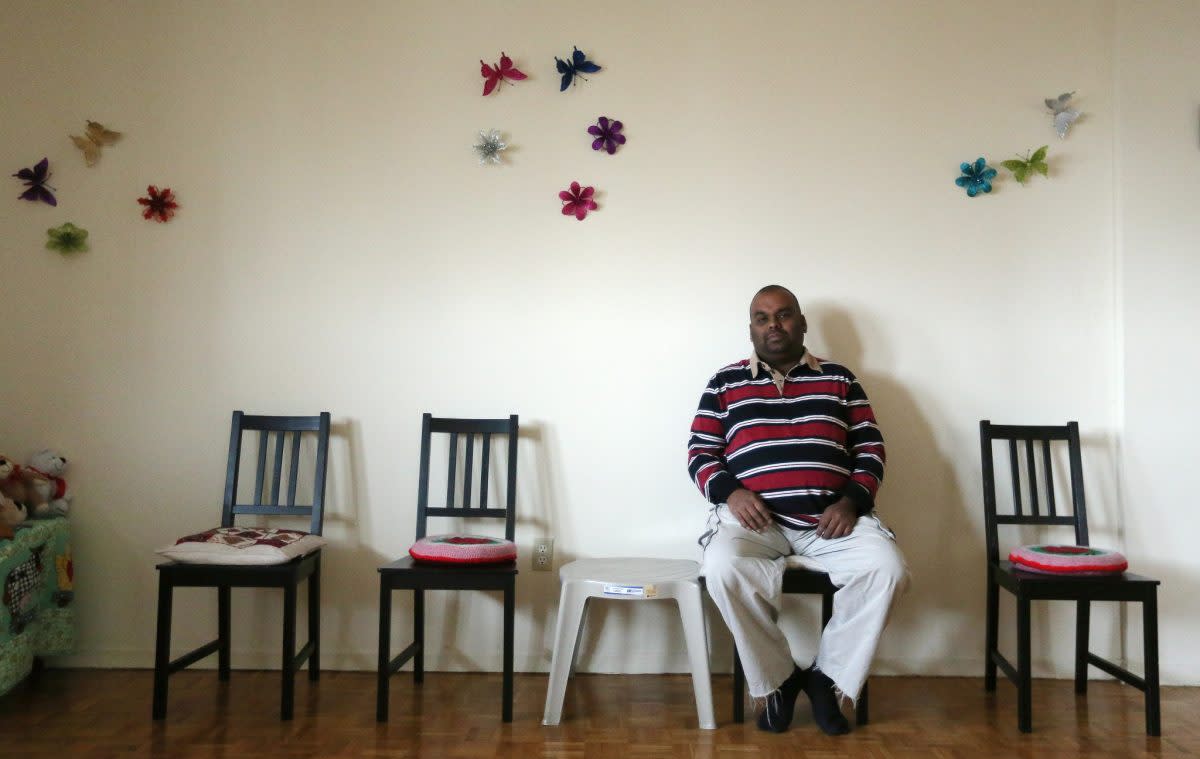Canadian wins 'significant' UN ruling against Sri Lankan government

Roy Samathanam, a Tamil Canadian who was thrown into prison and then tortured over a period of three years while in Sri Lanka, has triumphed in a decision by the United Nations Human Rights Committee.
The committee concluded last week that the government of Sri Lanka violated the rights of Samathanam. It called on authorities to provide the Toronto resident with “full reparation” for violations done by its Terrorist Investigation Division (TID).
It also urged the administration to “conduct a thorough and effective investigation into the facts,” to “prosecute, try and punish those responsible.”
“This is a very significant victory,” said Sharry Aiken, a law professor at Queen’s University and vice chair of the Canadian Centre for International Justice (CCIJ) which filed the petition to the UN committee for Samathanam.
“It does set one precedent — it is the first petition to a UN treaty body concerning the wrongdoings of the Sri Lankan state that has ‘won’ and this symbolizes an important acknowledgement of the many atrocities done to Tamils who now live in Canada and around the world,” Aiken told Yahoo Canada News.
The UN report says Samanthanam has been diagnosed with PTSD, and has pain in his left leg and numbness in his hand resulting from a beating in 2007, adding that he has testified that “he suffers from an irregular heartbeat and hypertension; that he needs painkillers; that he has been treated for depression.”
Samanthanam, 46, said in a statement released through the CCIJ that he was content with getting “a measure of justice.”
“I took this action not only for accountability in my case but for so many others who cannot speak out due to the danger they still face.”
When Samanthanam travelled back to the capital of Colombo during 2007 to get married, police raided his home and found 600 cellphones he had helped to import from Asia for a friend’s business. He refused to pay a bribe to the police and so was branded a threat to security.
At the time there had been a lull in the country’s civil war with the independence guerrilla group, the Tamil Tigers. That war ended in 2009 and there is now a new government in place.
During his incarceration, Samanthanam was kicked and struck with rifles and beaten with rubber pipes. He was threatened with death and was told police would also arrest his wife and rape her unless he signed a confession.
The UN committee also stated that “on other occasions, [Samanthanam] was forced to watch other detainees being beaten and tortured and to listen to their screams of pain and anguish.” In 2008, he was moved to another detention centre for 90 days and held in a small cell in solitary confinement without a toilet or access to water.
Samanthanam pleaded guilty to a single count of illegally importing an electronic device — which he has said was coerced. He paid a fine and was released, returning to Canada in 2011, with his wife and child joining him in 2012. A year later, Samanthanam enlisted the aid of the CCIJ to take his case to the United Nations.
What does this ruling mean in real terms?
“We have to be realistic,” said Aiken, who specializes in refugee and immigration law. “Unfortunately there has been little evidence since 2009 that the government intends to make any reparations to victims. In fact, while the very top people have been replaced in government, the people in the security forces remain the same.”
Aiken said there continues to be reports of security forces perpetrating the same kind of abuses and torture in present day. She said the country has its own independent human rights commission which submitted a report in 2015 to the UN outlining the ongoing use of torture by the TID.
“At the end of the day, these UN committees can only issue decisions,” she said. “These are recommendations and not a court of law. It’s up to the respective governments to implement these decisions and I don’t think the Sri Lankan government will do that.”
Aiken said the entire security forces of Sri Lankan would have to be overhauled for much to happen, but she emphasizes that she still believes in getting UN decisions.
“This gives the thousands and thousand of Tamils a candle of hope. For them, it felt futile and now, as a community, they can be confident in organizing and doing systemic lobbying to push for prosecutions.”
Aiken said she thinks a good consequence of this ruling could be that more Tamils might consider taking their cases to the UN and thereby, shaming the government.
“It is a very clear condemnation . . . So, indeed, it is a reason for celebration,” she said. “And let me tell you there are thousands of Tamils in Canada who [feel vindicated] through this decision.”



